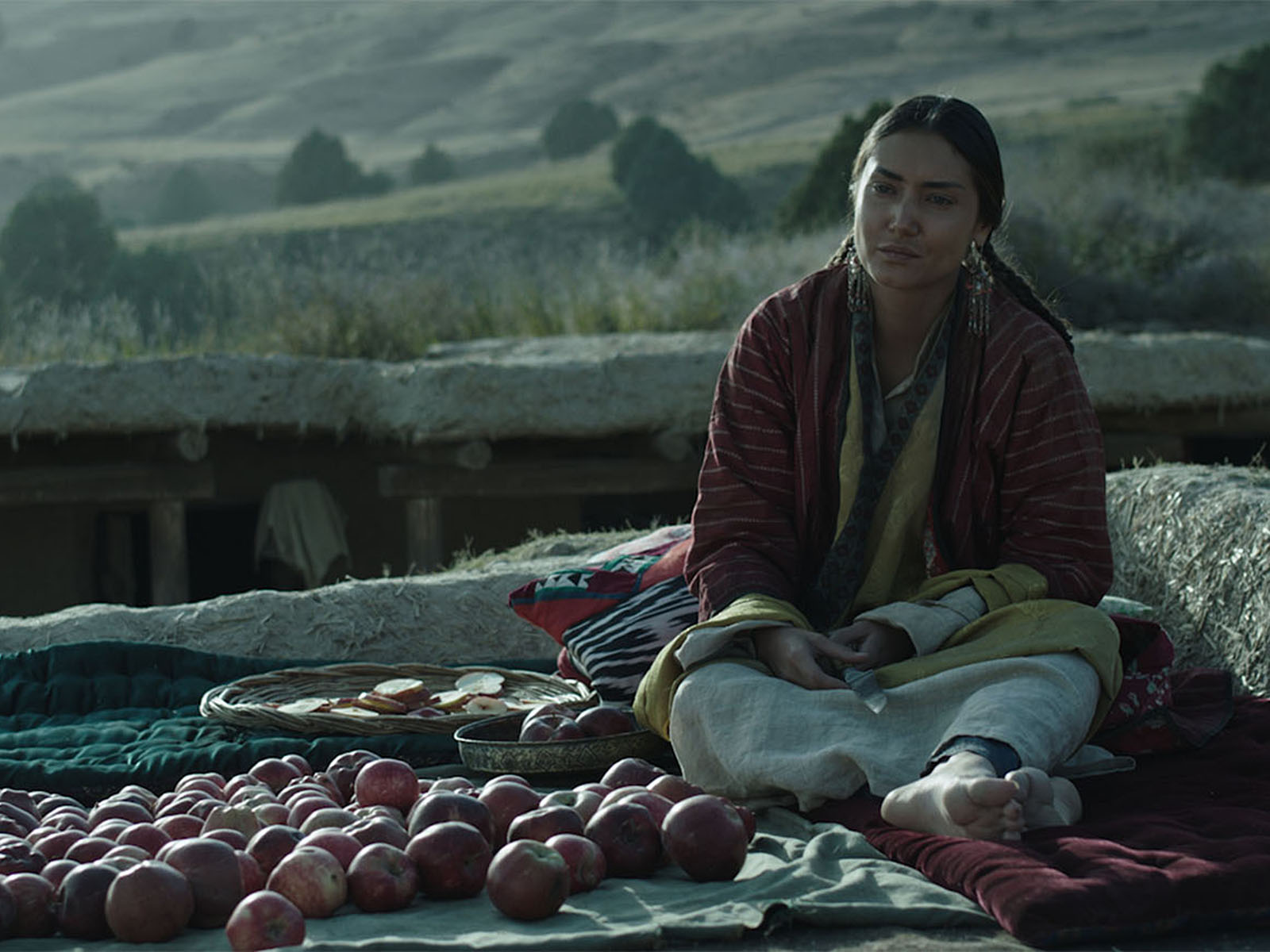
- Golden Globe Awards
2000 Songs of Farida (Uzbekistan)
2000 Songs of Farida from Uzbekistan is quite a rare film that concerns itself with the little-known history of Central Asia. The story takes place during the civil war that followed the Russian Revolution of 1917 and spilled into the Russian colonies in Central Asia. Like modern Uzbekistan, these are now independent states since the break of the Soviet Union in 1991. Also, the film is a story about the changes in local women’s lives under patriarchy and the war going on around them. Using the example of one local family, the film analyzes how the historical events of the beginning of the last century in Turkestan, affected the life of the population of this region.
A landowner of an isolated rural compound, Kamil (Bahrom Mahromov), brings home a new, young wife as his other three wives have not produced an heir. The arrival of a new woman in this polygamous family generates tensions and the social upheavals occurring in society violate the established order of his home. Kamil’s peaceful life with his three wives in the remote region of Turkestan (as the region was called at that time) is disrupted. Political and social changes inevitably affect this family, destroying long-standing family traditions. The problems are heightened by the fact that it is 1920 and the Red forces are advancing as the Civil War winds close to its end, towards a Bolshevik victory.
Director Yolqin Tuychiev uses long takes that flow around the single rural location in which the story is taking place, making the most of the obviously quite limited means.
Tuychiev was born in 1977 in Tashkent, the capital of the then Soviet Republic of Uzbekistan. He graduated from the Tashkent Institute of Arts in 1999. In 2000 he joined the High Courses for screenwriters and directors in Moscow. His films have been selected for several international film festivals including Moscow, Tokyo, Tallinn and Busan. He is known for his previous films Teenager (2005), Chasma (2006), P.S. (2010), Dunyo (2012), House for Mermaids (2015) and Ma’suma (2016).
“This film is neither a historical decoration nor a museum exhibition, nor an excursion into my ethnic background,” explains Tuychiev, “but the exploration of a real-life, real people, their reality, dignity and truth. That truth bears no lie. That truth seems to spring through time, grows and gets over the borders of history, mentality, nationality and race in order to reach a real sense of humaneness. And as for me – the Art of motion pictures is the best way to remember, comprehend and hope that we all are human beings in the flow of time.”

